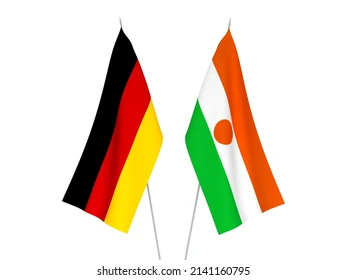
Niger and Germany have officially relaunched their bilateral partnership, reaffirming a decades-old alliance centered on sustainable development, humanitarian aid, and mutual respect.
The high-level talks in Niamey mark a significant turning point in relations between the two nations, once tested by political turbulence but now strengthened by a shared vision for the future.
The dialogue was presided over by Laouli Labo, Secretary General of Niger’s Ministry of Foreign Affairs, and Dr. Bernhard Braune, leading the German delegation.
The two parties reviewed key milestones since the establishment of their cooperation in 1961, during which Germany has contributed nearly 800 billion CFA francs to support critical sectors such as health, education, agriculture, and decentralization.
“Our partner is the Nigerien people, in their quest for self-determination,” declared German Ambassador Dr. Oliver Schnakenberg, referencing the 2025 Charter of Refoundation as a bold assertion of Niger’s sovereignty.
The sentiment resonated through the discussions, underscoring Germany’s focus on people-centric support rather than transient political regimes.
Despite a temporary suspension of cooperation following the events of July 2023, Germany maintained essential humanitarian assistance. Millions of euros continued to flow into nutrition and health programs led by the UN, benefiting communities affected by food insecurity and displacement across the Sahel region.
“We have never abandoned Niger,” Dr. Braune affirmed.
The talks also shed light on existing projects—like dryland irrigation in Dosso and vocational training in Zinder—that have improved local livelihoods.
Yet both sides acknowledged operational challenges including security threats, logistical hurdles, and administrative delays. Laouli Labo emphasized the need for greater synergy, stating, “We are building exemplary North-South cooperation, where every franc invested must resonate in the daily lives of Nigeriens.”
Looking ahead, Germany’s development agencies, GIZ and KfW, plan to bolster support for agroecology and renewable energy initiatives, aligned with the UN’s Sustainable Development Goals.
These efforts aim to address the region’s growing climate and security challenges, with 4.3 million Nigeriens currently facing food crises and over 2.8 million displaced, according to the UN Office for the Coordination of Humanitarian Affairs (OCHA).
Ambassador Schnakenberg hailed the meeting as “a milestone,” laying the groundwork for deeper engagement ahead of the 2026 intergovernmental negotiations in Berlin.
The renewed cooperation will prioritize inclusive education, sustainable agriculture, and local governance—pillars of a long-term strategy for peace and prosperity in the Sahel.
As dusk fell over Niamey, the message from both delegations was clear: Niger and Germany are entering a new chapter—one defined not only by strategic partnership but also by enduring friendship, built on solidarity, trust, and the shared ambition of a more just and resilient future.



